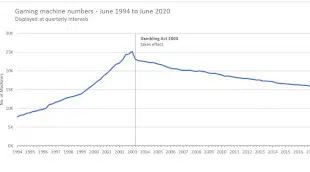A gambling act is a piece of legislation that a government passes to regulate the growth of gambling. Additionally, it permits or imposes restrictions on certain gambling activities.
It also tries to protect demographics considered more vulnerable to gambling addiction. Essentially, it tries to mitigate the risks associated with gambling.

Naturally, the NZ Gambling Act 2003, based on the 2002 Responsible Gambling Bill, exists for the same reasons.
The Act harmonised and replaced the Gaming and Lotteries Act of 1977 and the Casino Control Association Act of the 1990s.
It is now NZ’s primary legislation governing the authorisation and prohibition of various types of gambling.
This article will give you a comprehensive overview of the Gambling Act. We will examine its purpose, the various gambling classes, and the forbidden types of games, among other issues.
Latest Goverment news
What’s it for?
The NZ Gambling Act serves various purposes including:
- Controlling gambling growth
- Facilitating responsible gambling
- Community participation in decision-making regarding gambling provision
- Creating an environment in which gambling proceeds benefit the community
- Improving the conduct of gambling by minimising opportunities for cheating and crime
- Increasing fairness and integrity within gambling games
- Authorisation and prohibition of different games
- Mitigating and preventing gambling-related risks and harms
Gambling classes
The Act breaks down gambling into three different classes.
These represent what the legislators see as increasingly significant tiers within the gambling sector.
These carry with them increasing levels of risk and reward.
Class 1
The first and lowest class is organisations or individuals with a turnover and prize pool of less than $500. The Act requires that gaming turnover minus costs must be used to reward individual winners.
It declares that if organisations conduct gambling, they should channel all proceeds to society’s stipulated purpose.
Furthermore, the Act states that any party falling under Class 1 requires no gaming licence and must not charge a commission.
Class 2
The next type of gambling involves operators whose turnover is between $500 and $25,000. Like Class 1, these parties do not require a gambling licence.
Additionally, the Gambling Act forbids paid commissions or other forms of extra remuneration, as in Class 1. The difference between Class 1 and Class 2 is in the scale of operations.
Due to the larger sums involved, the law only allows corporate or unincorporated societies to run this type of gambling, not individuals.
Furthermore, the Act also regulates the number of points of ticket sales and their composition. These regulations include the provision of the following information: the name of the society and the names and addresses of the gambling organisers.
Other requirements include stating the society’s authorised gambling objectives, the number of tickets and the cost of entry.
Class 3
Parties falling under the Class 3 umbrella are the first to need a gambling licence to operate. The group comprises operators which offer prizes worth up to $5,000 per session.
These operators must be incorporated into societies. Other provisions for Class 3 gambling include the requirement for games to have clearly defined rules.
What’s more, it forbids operators from paying promoter’s commissions or from using gaming machines, either directly or indirectly.
Again, the Act permits this type of gambling solely in order to raise funds for an authorised purpose.
Class 4
This is the highest and most strictly regulated tier of gambling operations under the Gambling Act.
Class 4 gambling requires the operator — which must be a corporate society — to obtain a gaming venue licence. Operators also need an operator licence if their society is a registered business.
Where this group differs from Class 3 concerns the potentially larger sums of money in play. It also concerns the use of gambling machines, such as pokies, outside traditional casinos.
However, once again the use of any proceeds from this gambling can only contribute towards society’s approved purpose.
Forbidden types of games
Another important aspect of the legislation is the proscribing of various types of gambling.
Generally, all forms of gambling in NZ are banned unless explicitly approved by the Act. It permits all regulated gambling which takes place within the four classes discussed above.
However, regardless of the scale, the Act forbids some forms of gambling and games. The prohibited types of gambling include:
Bookmaking
Betting transactions regarding sporting events or games, such as horse racing, are illegal under the Act unless it falls under the limits of the Racing Industry Act of 2020.
For inclusion under this Act, bookmaking must fulfil all the Act’s regulatory requirements.
Gambling on devices
The Act prohibits Remote Interactive Gambling, which it defines as gambling at a distance by individuals using communication devices. Such devices include things like computers, smartphones or radios.
Despite this, the Act does allow some distance-using devices.
The main one is online gambling overseas at online casinos. It also exempts Class 3 operators, albeit only until October 2024.
Age restrictions
The Act imposes age limits on certain games. For example, anyone under 18 can’t buy or try to buy a gambling ticket from an on-site operator.
These rules apply to the New Zealand lottery, instant games such as scratch cards, and other Lotteries Commission games. Consequently, any under-18 caught doing this can potentially face a $500 fine.
Furthermore, anybody found guilty of selling or offering to sell gambling tickets to a minor face a $1,000 fine.
FAQ
Is foreign remote gambling permitted?
While remote gambling on phones, radios, and computers is forbidden under Section 9, foreign remote gambling is not. These sites must be based outside NZ.
Nevertheless, note the Act stipulates that NZ citizens who fall victim to a scam while taking part in this gambling receive no legal protection.
What new things does the NZ Gambling Act 2003 bring?
The Act fully regulates the gambling sector and merges various existing laws to take new technology into account.
It has served as the foundation for subsequent Acts such as the Gambling Act 2005 and the Gambling Act 2015.


